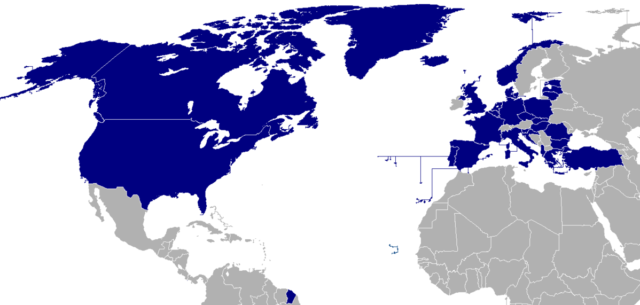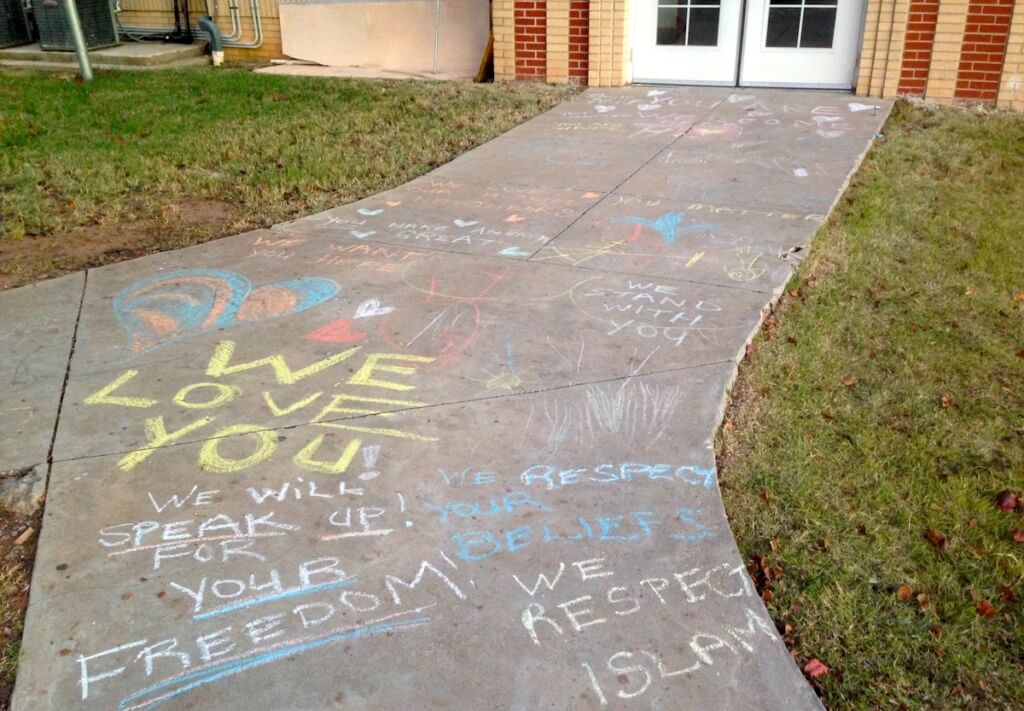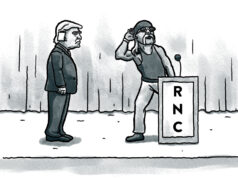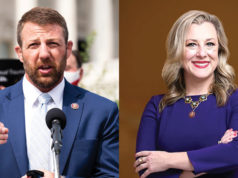
Driving back from a state question watch party in Oklahoma City last Tuesday night, I refused to believe it was true: Trump was winning in Michigan. And Wisconsin. And Florida. My companions for the evening were panicking. I refused to believe it was true. But it is. And it will hurt for a long time yet.
After Tuesday’s surprising election results, after Brexit, after the election of Rodrigo Duterte as the president a crucial Asian ally, the system of alliances and norms and values that has sustained peace and prevented a third world war is under incredible strain. What could come next is frightening.
During the campaign, I argued on multiple occasions that Donald Trump should be considered a major threat to our standing in the world (See here, here and, published on Election Day, here). Writing the evening of Wednesday, Nov. 9, less than 24 hours after the election was over, I am even more pessimistic, because I have no choice but to take the president-elect at his word.
Europe fraught with uncertainty
On Wednesday afternoon, I spoke with Eugen Freund, a prominent member of the European parliament and its Committee on Foreign Affairs. Besides serving as an MEP, he was a journalist and eventually anchored the Austrian national news. He moves in the highest European circles. His perspective only confirmed what I feared: Trump’s victory is a shock to Europe, our most important allies.
The questions circling the capital cities of Europe are many: Should they take Trump’s statement that Japan, South Korea and Saudi Arabia should possess nuclear weapons at his word? What is the future of NATO under Trump’s leadership? And what does this mean for the US-European security alliance? These are not minor questions. They are existential ones.
As I noted on Election Day, “stronger together” isn’t a slogan. It’s a worldview. And while German Chancellor Angela Merkel extended an olive branch to the new administration, she did so “only on the basis of shared values.” What she did not admit, but Freund suggested, was that Europe knows NATO is no longer the absolute guarantee that it has been since 1945.
Article Five of the North Atlantic Treaty that created NATO says that an attack on one member state is an attack on all of them. NATO is the cornerstone of the system that helps to manage and contain conflict — and preserve peace. If our European allies can no longer trust that the United States will honor its obligations, they will be forced to turn inward to guarantee their own security.
What will this mean? As MEP Freund suggested, ongoing discussions about the future of European defense and security policy — including those held on the Nov. 8 and 9 — have taken on a new urgency. A leading European security publication, Brussels2, argued the day after the election that the time had come for Europe to “move your ass!”
NATO uh-oh: Baltic vulnerability increases
Nowhere will this discussion be more urgent than in the Baltic states: Lithuania, Latvia and Estonia. As NATO members, they have been unwavering allies and fighters during the only operation that ever invoked the common defense clause, the U.S.-led war in Afghanistan. They spend more than the required 2 percent of GDP on defense. They buy American weapons, giving billions to our defense industry. As the former president of Estonia reminds us, they live up to their promises, with the perfectly reasonable expectation that we live up to ours.
The Baltic states are basically indefensible from Russian attack. They are caught between Russia and the Baltic Sea. NATO membership — the Article Five guarantee — is their greatest protection. Russia has had to believe that if they were to attack Riga, NATO would spring into action to protect Latvia. That guarantee is no longer valid. As Stephen Saideman, a scholar of defense policy, recently noted, Donald Trump is an “uncertainty engine” that may yet destroy the predictable, bipartisan American foreign-policy consensus that has served this country so well since 1945.
Small-scale violence already brewing
If Trump is to be believed, we now live in a world where the proliferation of nuclear weapons is not prohibited, it is to be encouraged. If our allies no longer believe that we will have their backs, they will be forced to turn inward, to build their own fortresses. If what Trump said during the campaign is true, if his words are to be believed, his “vision” of foreign policy, of American isolationism, makes violence and large-scale conflict more likely — not less. And that is truly frightening.
RELATED
‘Be the change’ in the shadow of Donald Trump by Josh McBee
What has happened in the past few days has been scary enough: attacks on the LGBT community, against Muslims, African-Americans and against women. The answer is not for we who condemn such actions to retreat, but rather for us to organize, to work, to campaign and to win the 2018 mid-term elections and the presidential election in 2020. The solution is not to move to Canada. The solution is to stand for our values of decency and compassion, of openness and diversity. And not to hate those who hate us for those values.
As former President Richard Nixon famously remarked: “Always remember others may hate you but those who hate you don’t win unless you hate them. And then you destroy yourself.”
He had an excellent point.






















